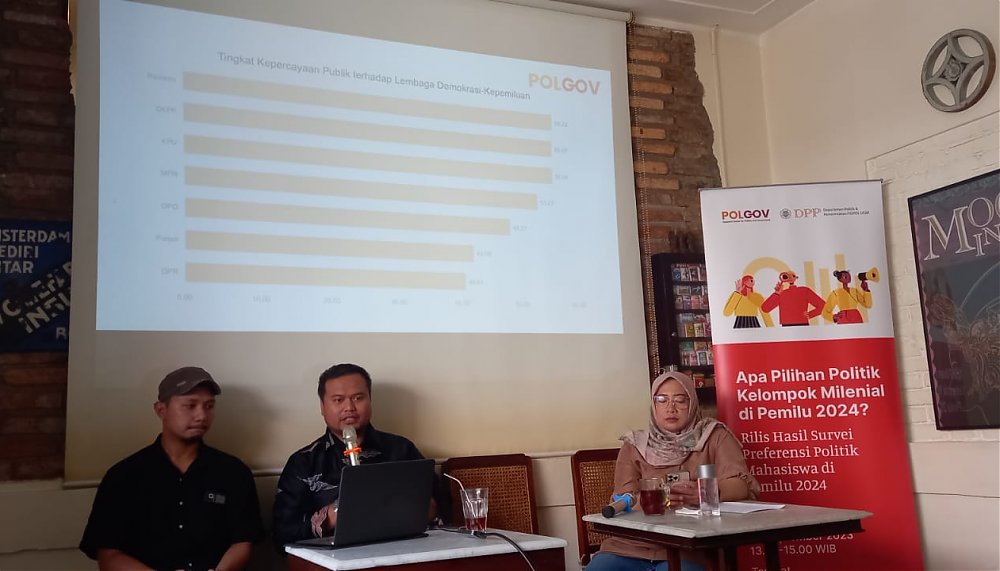The Research Centre for Politics and Government (Pol-Gov) at Gadjah Mada University found that students have a relatively high level of engagement with political parties. According to the survey results from the research institution at the Faculty of Social and Political Sciences (Fisipol), a campus in the Special Region of Yogyakarta, 21% of student respondents admitted to being close or affiliated with a particular political party.
"There are 21 percent who feel close," said Arya Budi, an academic from Fisipol UGM, during the release of the survey results on "What Are the Political Choices of the Millennial Group in the 2024 Elections?" in Jakarta (5/26).
Arya explained that in the survey's questions about political party preferences in the 2024 Elections, some of the student respondents chose not to answer. The survey then continued to ask if each respondent had any affiliation or closeness to a particular political party. It turns out that respondents who did not answer the previous question chose to answer that they have an affiliation or closeness. Then, in the following question, those respondents were willing to mention a specific political party as evidence of their affiliation or closeness.
The percentage of political party closeness among student respondents is relatively higher compared to the general respondents in national surveys conducted by polling institutions. Referring to the results of the Indikator Politik survey in the context of the 2019 elections, the level of party identification (pary-ID) among the Indonesian population was 7%. This means that student respondents have a level of closeness that is three times higher.
The Pol-Gov survey was conducted from July 24 to August 7, 2023. The respondents consisted of 719 students from 31 different universities across 29 provinces in Indonesia.
The sampling method used was chain referral sampling, also commonly known as snowball sampling. Efforts to reach students involved faculty members and researchers who teach at the target universities, which are also part of the Research Centre PolGov network. The academic network in various universities and respondents could recruit other students as survey respondents.
“Student opinions and preferences are central because their level of literacy and attention to public issues and political dynamics can have implications for the political attitudes of other voter groups," emphasized Arya. []
Translated by Catherine Natalia











